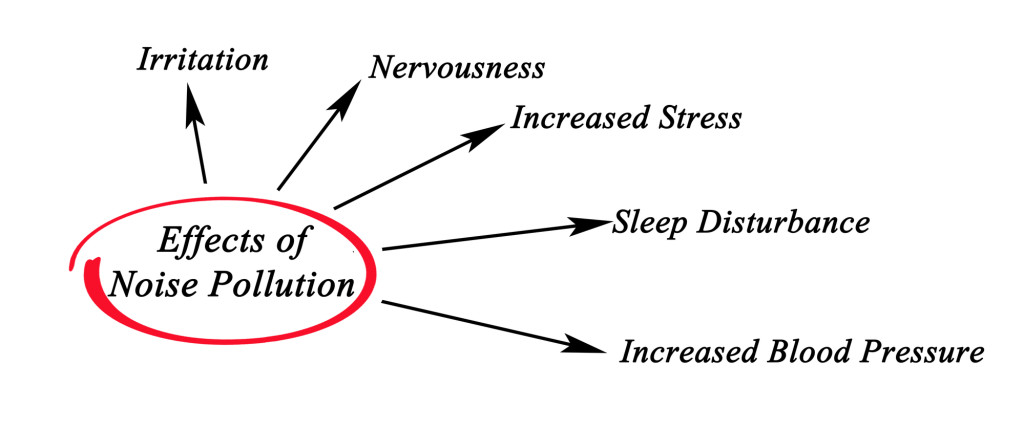Step outside your house and you are welcomed not by green trees and the beauty of nature, but the sound of vehicles passing by, unnecessarily loud honking of trucks and buses and a large amount of smoke emanating from the exhausts of each and every vehicle. Pollution has become a rising problem in India, and a recent survey has now ranked our capital city New Delhi as the most polluted in the world. Clearly, this is not something Indians should be proud of.
Pollution is mostly on the rise because of increasing number of vehicles on the road, improper disposal of waste products, lack of implementation of regulations regarding CO2 emissions and just plain old laziness of people to make an effort to reduce pollution.

Remember, pollution is not just smoke in the air (air pollution); it is also the noise of vehicles (noise pollution), throwing of waste materials all over the streets (land pollution), excessive use of lights (light pollution) and too many unattractive posters and banners across the cities (visual pollution). Mobile phones are believed to cause ‘invisible’ pollution.
As an individual pollution may not seem like much, and our whole attitude on ‘someone else will sort out the problem’ is if anything negligent. We may not worry about others, but we all worry about our children, and what the future might be for them with such levels of pollution. Pollution has been associated with numerous health problems, and here we shall highlight some of the important ones that will likely affect us all in the years to come.
Who is vulnerable?
Pollution can affect a number of different individuals, including –
- Children under the age of 14 years (lungs still developing)
- Pregnant women
- People with lung or heart disease
- People who work in sewers and mines
- People who mostly work outdoors (which many of us do in India)
Effects of pollution on our health
When we think of the link between our health and pollution, naturally we think of the air we breathe. Within this air is particulate matter and ground level ozone – these are mostly responsible for the effects on our health. The most recent data from the Global Burden of Disease Project indicate that in 2010, 3.2 million deaths worldwide resulted from air pollution. These numbers are staggering. Below are some of the effects that have been seen over the years.
Rising incidence of cancer
Passive smoking is well known risk factor in the development of lung cancer. Exposure to diesel exhaust fumes has also been linked to cancer. Gases such as radon have been linked to lung cancer. Products such as benzene have been linked to development of leukemia and other types of blood cancer. The Bhopal Gas Tragedy is all too reminiscent of the effects of air pollution. The International Agency for Research on Cancer (IARC), a division of the World Health Organisation, has now classified air pollution as a ‘cancer causing agent’. In particular, they cause lung cancer and bladder cancer.
Development of lung disease
There is an increased chance of your child developing lung problems in the future due to air pollution. This is due to the presence of ground level ozone, which is a volatile product formed when nitrogen oxides and similar products are exposed to ultraviolet rays of the sun. These nitrogen products are released from the exhausts of our vehicles after the burning of fuel. Ground level ozone tends to be at its highest level in the afternoons and evenings. Being an irritant, it can increase the chance of developing chronic lung disease, wheezing, asthma and bronchitis. Exercise performance can reduce and there is an increased chance of developing recurrent chest infections.
In addition to ground level ozone, particulate matter is a culprit in the development of lung disease. Particulate matter is a combination of fine particles of dust, soot, smoke, sulphates, nitrates and rubber (from vehicle tyres). Smaller particles (termed PM2.5) can enter the lungs all the way to the deepest corners, where they begin damage of the lung tissue leading to reduced lung function, breathing difficulties, persistent cough and finally lung cancer.
Heart disease and stroke
Ground level ozone can increase the chances of developing heart attacks, irregular heart rhythms and stroke. While this risk is small in those who have normally functioning hearts, it is significantly higher in those who have previously had heart attacks, angioplasty or heart surgery.
A combination of hot weather and pollution makes the elderly population groups vulnerable to cardiovascular disease.
Effect on hearing
Constant noise pollution from drilling, shrill horns and working with loud machinery is associated with gradual hearing loss over years. Individuals may find it difficult to sleep at night due to the noise, which can lead to fatigue and low productivity.

Impact on pregnancy
In a study looking at the effect of pollution from traffic on pregnancy, it was found that noise exposure and air pollution both led to low birth weight. It is a well known fact in medicine that low birth weight and slow growth of the baby in the uterus are associated with numerous health problems in the future for the child such as higher risk of developing high blood pressure, diabetes and coronary heart disease.
Fetuses seem to be particularly vulnerable as the early stages of growth in the womb is when the growing cells are vulnerable to external influences. Just like we avoid alcohol and smoking in pregnancy due to effects it has on the growing fetus, similarly it is essential to avoid exposure to environmental toxins as much as possible.
While the discussions above mostly concentrate on air and noise pollution, it is interesting to know that land pollution is also affecting our health. Herbicides, pesticides and similar compounds that are sprayed on growing vegetables and fruits are all toxic to the human body. Studies have linked pesticide use to the development of Attention Deficit Hyperactivity Disorder in children. Dumping batteries into landfills has the potential of polluting the underground water with cadmium, a toxic battery chemical. Unplanned and excessive urban development itself has been linked to altered global temperatures and contaminated water.
Do we not care?
Pollution is a global problem which is slowly killing us. If not our current generation, most certainly our future generations are looking at a lifetime of ill health from breathing in toxic fumes and living in conditions where garbage is dumped on the roads. A YouTube video recently showed how people would pick up a Rs. 50 note from the ground if they saw it, but not a piece of scrap paper. Do we really not care? Our health and the health of our loved ones should be our priority in life, and if we do not have that then nothing else in this world matters.
The effects of pollution on our health are many. The problem exists – accepting that is the first step. Taking action is the next. Simple steps start at home.
Make sure you dump waste in designated waste areas. Discourage smoking in public. Strict regulations on carbon dioxide emissions from vehicles must be implemented by law authorities. It is actually a disgrace to our great nation that our capital city is ranked #1 when it comes to pollution, and we must try and do what we can in our neighbourhood to prevent other cities from joining the group. Changes cannot be made overnight – educating our kids of the importance of environmental cleanliness and educating the public regarding the hazards of pollution will pave the way forward for a clean and bright future for all.

- Understanding Iron Deficiency Anemia: A Guide for Patients - May 31, 2025
- CT Coronary Calcium Score: A Guide for Patients - January 7, 2024
- Gastric Antral Vascular Ectasia (GAVE) – Causes, Diagnosis, and Treatment - August 5, 2023

